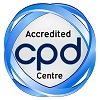
Rebecca E. Lee
Arizona State University, USA
Title: Sustainability via Active Garden Education (SAGE): Enhancing the social return on investment from school programming
Biography
Biography: Rebecca E. Lee
Abstract
Aim: The Ecologic Model of Physical Activity (EMPA) suggests that actions in one micro-environment, like early care and education centers (ECEC), may influence actions in other micro-environments, like the home, via dynamic exo-environmental linkages. This collection of studies explored how experiences that children have at ECEC may influence parent behavior and the home environment.
Methods: Over three controlled experiments (SAGE 1 N=9; SAGE 2 N=11; SAGE 3 N=13), Sustainability via Active Garden Education (SAGE) was developed and tested as a 12-session, garden-based physical activity and fruit and vegetable promotion program for children age 3-5 years delivered in ECEC. SAGE uses the plant lifecycle as a metaphor for human development. Children learn how to plant, water, weed, harvest, and do simple food preparation along with active learning songs, games, science experiments, mindful eating exercises, and interactive discussions. In SAGE 2 and 3, parents received weekly newsletters linked to the curriculum and local resources and events. Newsletters were developed using nominal group technique and later evaluated by focus groups. SAGE 1 parents completed measures about perceived benefits from their child’s participation. SAGE 2 and 3 parents reported parenting practices and home fruit and vegetable availability.
Results: In SAGE 1, most parents believed that SAGE improved their child’s knowledge of physical activity (83%) and nutrition (92%) and improved their own knowledge of physical activity (69%) and nutrition (83%). Over half (54%) stated that their child asked to do SAGE activities at home. Focus groups rated newsletters favorably, liking content, colors, organization, layout, and reading level. SAGE 2 and 3 parents reported more practices encouraging and fewer practices discouraging (ps=.05-.17) their children’s physical activity after participation in SAGE. SAGE 2 and 3 produced modest but consistent increases in home fruit and vegetable availability after the SAGE interventions.
Conclusions: Activities that happen in the child’s ECEC micro-environment may have exo-environmental ripple effects beyond what happens in the ECEC, enhancing the social return on investment from school programming. Children are part of a dynamic system and can serve as active change agents, influencing parents and other family members as well as the home environment.

